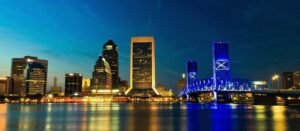Greater Noida (World Desk): The United States Agency for International Development (USAID) is making headline worldwide. American Businessman Elon Musk has shared several post related to USAID on his social media websites. Many other leaders from across the world are writing about this agency.
Officially USAID is an independent agency which provides financial assistance for civilian activities across the world of the United States government that is primarily responsible for administering civilian foreign aid and development assistance.
According to a WikiLeaks report, “USAID has pushed nearly half a billion dollars ($472.6m) through a secretive US government financed NGO, “Internews Network” (IN), which has “worked with” 4,291 media outlets, producing in one year 4,799 hours of broadcasts reaching up to 778 million people and “training” over 9000 journalists (2023 figures). IN has also supported social media censorship initiatives.”
USAID has pushed nearly half a billion dollars ($472.6m) through a secretive US government financed NGO, “Internews Network” (IN), which has “worked with” 4,291 media outlets, producing in one year 4,799 hours of broadcasts reaching up to 778 million people and “training” over…
— WikiLeaks (@wikileaks) February 8, 2025
The US Agency for International Development (USAID) has been leading US development and humanitarian efforts around the world since 1961. It has coordinated effective responses to numerous humanitarian emergencies and strengthened development work abroad, resulting in a strengthening of US national security and goodwill towards the US. President Donald Trump, who sought to cut USAID funding in his first term, is now considering major changes to the agency. Experts believe the Trump administration’s decision to pause most foreign aid for ninety days undermines American leadership and puts global communities at risk.
Why So Important?
USAID has been an important pillar of US soft power for the past six decades and a major source of foreign aid for struggling countries. The agency has responded to global food security crises and other international emergencies. In the late 1960s, for example, USAID played a key role in the eradication of smallpox. Decades later, it also participated in a global campaign to fight polio. In addition, USAID has been a key implementing partner of the President’s Emergency Plan for AIDS Relief (PEPFAR), which was launched by George W. Bush in 2003. More recently, it has also supported the distribution of vaccines, humanitarian aid, and health workers during the COVID-19 pandemic. USAID is an independent government agency and is responsible for providing billions of dollars in humanitarian assistance abroad. It was founded in 1961 by President John F. Kennedy, at the height of the Cold War, and was intended to challenge Soviet influence.
The Trump Administration and USAID
Trump ordered a ninety-day freeze on U.S. foreign aid as soon as he took office and called for a review of all foreign aid programs. They argued that “the U.S. foreign aid industry and bureaucracy are not in line with American interests.” Some programs were excluded from the freeze, such as life-saving medical services and food aid.
Challenges to the ongoing review
Experts believe Trump’s freeze on foreign aid could spell the end of these programs. The move could impact global efforts to control pandemics, combat terrorism and improve public health. As a result, humanitarian crises in countries like Haiti, Congo and Sudan could worsen. The freeze could also have a negative impact on US soft power and undermine partnerships abroad.









